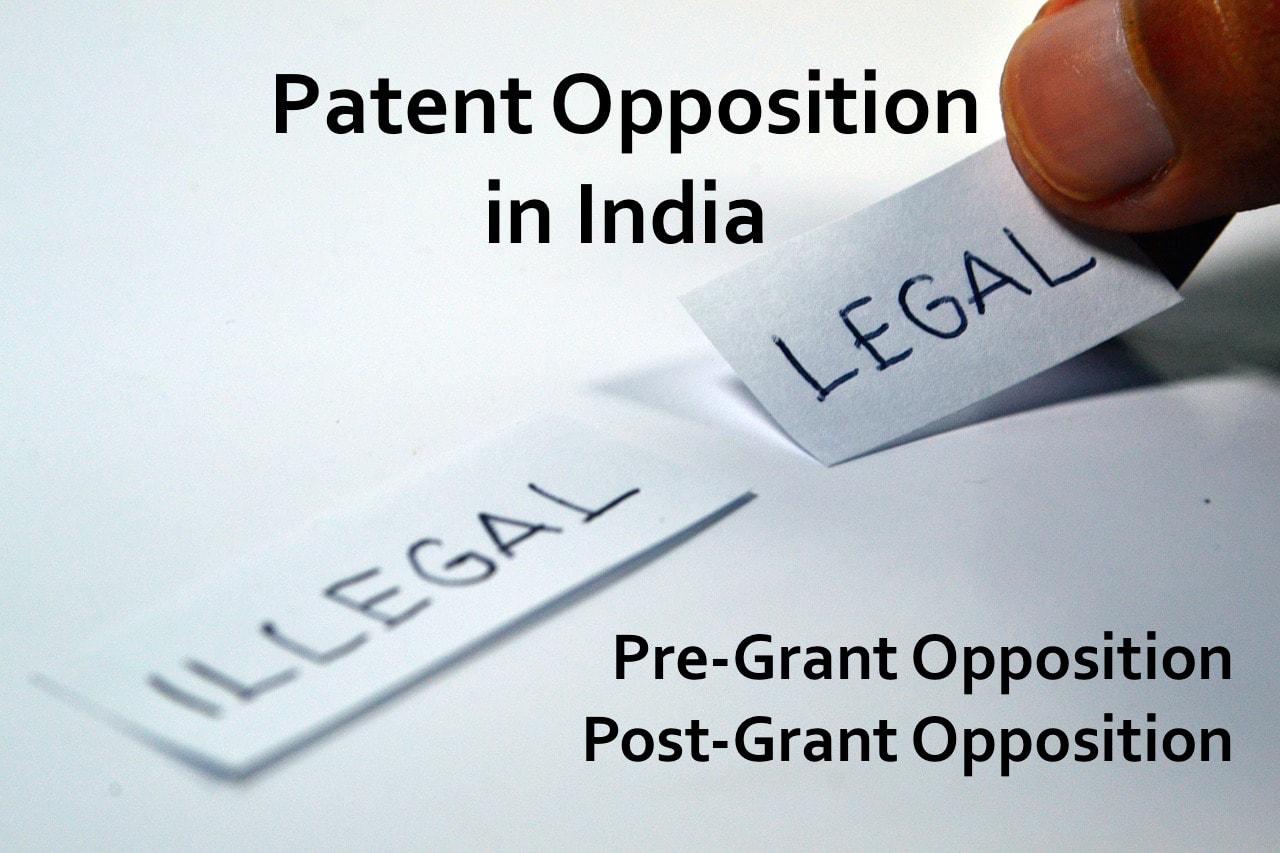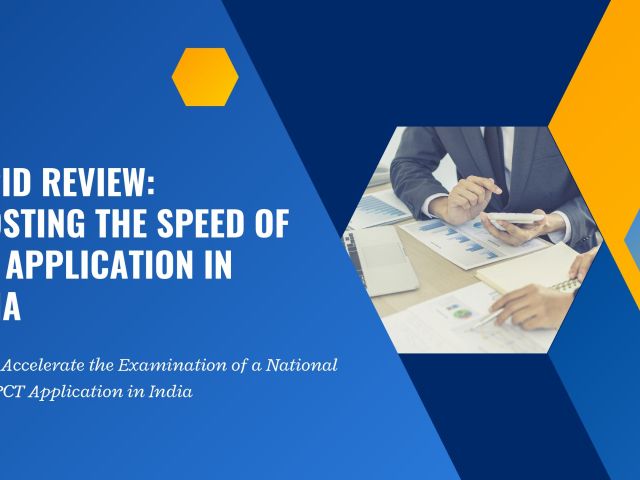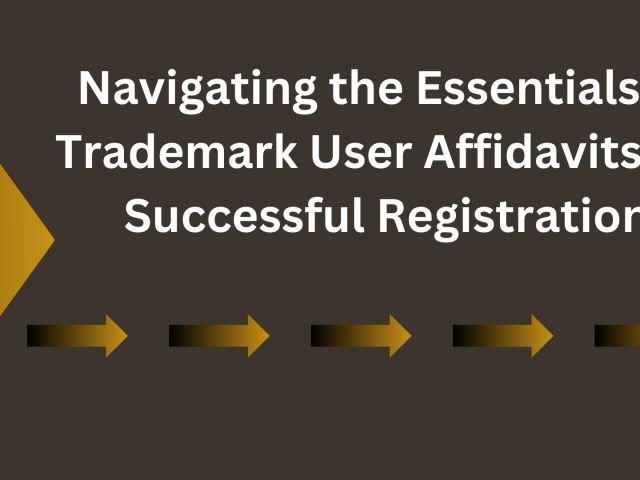Under the Indian Patents Act 1970, third parties are given an opportunity to file oppositions against the grant of any patent. There is a specific duration specified in the act for the same. Section 25 of the Act deals with Opposition.T he opposition period involves two stages- pre-grant and post-grant.
Pre-grant opposition (sec. 25(1)):
The Pre-grant opposition can be made at any time after the patent application has been published but before the grant of a patent. Ordinarily, a patent application is published only after a period of 18 months from the date of filing the application or date of priority whichever was earlier. Any person may, in writing to the controller, contest the grant of a patent. The controller then on his discretion and after considering the evidence and statements submitted by the Patent applicant, decide to grant the patent or refuse it or require an amendment to the complete specification to his satisfaction.
Post-grant opposition (sec.25 (2)):
The post-grant opposition can be made at any time after the grant of a patent but before the expiry of 1 year from the date of publication of grant of a patent. Any ‘interested person’ can give a notice to the controller for post-grant opposition. The person desiring to give the notice of opposition shall state the nature of his interest in the matter. Person interested includes a person engaged in, or in promoting research in the same field as that to which the invention relates. It may be an organization that has manufacturing or trading interest in the goods connected with the patented article or which has a financial interest in manufacturing such goods or which possesses Patents relating to the same subject. The Controller constitutes an Opposition Board comprising of 3 members who conduct the examination of the Patent and submit their report to the controller. After hearing both the parties and upon consideration of the recommendations of the Board, the controller shall decide upon the opposition and inform the parties about the same with reasons thereof. The parties if not satisfied with the decision can appeal to the Appellate Board.
Grounds for Opposition:
The grounds for both the pre-grant and post-grant oppositions are the same. The Act enumerates eleven grounds on which opposition can be made. They include:
Wrongful obtaining of the invention; • Anticipation in view of prior publication in India or elsewhere; • Anticipation in view of prior claiming in India;• Anticipation in view of prior public knowledge or public use in India;• Obviousness or lack of inventive step in view of prior publication in India or elsewhere, or prior public use in India;• Not being an invention or not being patentable under the act;• Insufficiency and lack of clarity of description of the invention;• Failure to disclose information or provision of false information pertaining to related foreign filing patent application;• Failure to file a convention application within 12 months of filing the first application in a convention country;• Failure to disclose or wrongful mention of the source and geographical origin of the biological material used for the invention; and • Anticipation in view of traditional knowledge of a community (oral or otherwise) anywhere in the world.
Procedure – Pre Grant:
The Pre-grant opposition is made by way of ‘representation’ to the Controller of Patents within a period of three months from the date of publication or before the grant of patent whichever is later. The representation must include a statement of case; evidence, if any, in support of the representation; and a request for a hearing, if desired.
However, the Controller shall consider the representation only when the request for examination of the application has been filed. The Indian patents act provides that a request for examination can be filed, even by an interested person, if he or she can provide evidence of his or her interest. After considering the representation, the controller notifies the Patent applicant with a copy of the representation. Usually, alongside such notification, the controller also issues an examination report, citing his or her observations based on the examination of the application for compliance with the act, and the patentability of the invention. The applicant is required to respond to the notification with a statement and evidence (if any) in support of the application within three months of the date of the notice. If on the perusal of the representation, the Controller is of the opinion that the application for the grant of the patent should be refused or the application should be amended, he shall give notice of the opposition to the applicant. The applicant has one-month time from the date of the receipt of the notice to file statement and evidence supporting the application. After considering the representation and submission and hearing the parties, the controller shall simultaneously either reject the representation and grant the patent or accept the representation and grant the patent. The Controller is required to deliver his decision ordinarily within a period of one month from the date of completion of the proceedings.
Post Grant:
The post grant opposition is made by way of ‘notice of opposition’. The opponent must give the notice of opposition in the prescribed form to the Controller of Patents in duplicate. Along with the notice, the opponent shall send a written statement in duplicate setting out the nature of his/her interest, the facts on which he/she bases his/her case, the relief that he/she seeks and evidence (if any) and shall deliver a copy thereof to the patentee.
Upon receiving the notice, the Controller shall constitute an ‘Opposition Board’ that consists of three members and shall nominate one of the members as the Chairman. The examiner who has dealt with the impugned patent application at the time of the grant is disqualified from being a member. The Opposition Board would examine the notice of opposition and shall forward a report to the controller within a period of three months from the date on which the documents were forwarded to it.
If the patentee desires to contest the notice of opposition, he/she shall leave the reply statement setting out fully the grounds upon which the opposition is contested and evidence within a period of two months from the date of receipt of the opponent’s written statement and notice. The patentee shall also forward a copy of his statement and evidence to the opponent. The opponent has the opportunity to rebut the case of the patentee. He/she may within a period of one month of the receipt of the patentee’s reply statement and evidence leave evidence strictly in reply confined to matters in the patentee’s evidence. After this stage evidence cannot be delivered except with the leave of the Controller. With respect to further evidence filing, either party shall do so before the Controller‘s notification on the fixation of the date of hearing
After the completion of presentation of evidence and after receiving the recommendations from the Board, the Controller shall fix a date for the hearing. Both the parties shall be given a notice of not less than 10 days of such hearing. If either of the party desires to be heard, it shall give a notice along with the prescribed fee to the Controller. The Controller may refuse to hear any party which has not given such notice and fee. The Controller may require the members of Opposition Board to be present in the hearing. After hearing both the parties the controller shall give a reasoned decision.




